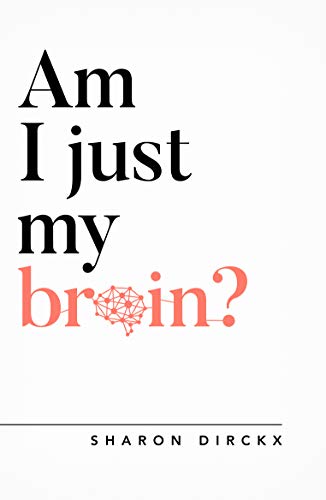A Book Review from Books At a Glance
By Fred Zaspel
Questions about why or how we think, what thinking is, and why or how we have such things as consciousness, self-awareness, emotions, and memory, are not the kinds of questions that typically keep us awake at night, but they are important questions nonetheless and with profound theological implications. If what makes me me is just so much brain activity (naturalism), then I am no more than a machine or perhaps an animal. But if the mind is something more than the brain, then self-identity takes immeasurably greater significance.
Sharon Dirckx, PhD in Brain Imaging from the University of Cambridge, is better qualified than most to address this question, and her expertise in neuroscience is obvious throughout her book. She has over a decade of experience in functional magnetic resonance imaging (fMRI), having held positions in the UK and the USA. In the States, she conducted research into human cocaine addiction. She is currently a Senior Tutor at the Oxford Centre for Christian Apologetics.
The first half of the book (chapters 1-4) address the central question – the relationship or connection between the brain and the mind.
- Am I really just my brain?
- Is belief in the soul out of date?
- Are we just machines?
- Are we more than machines?
Here Dirckx is clearly in her element as she explains brain function and analyzes such concepts as consciousness, self-awareness, memory, fears, emotions, etc., arguing that the human person is more than can be explained in naturalistic terms. Throughout she effectively demonstrates the reasonableness of the biblical assertion that we are made in God’s image – we are indeed demonstrably more than a functioning machine with skin, and more than a mere animal.
The second half of the book (chapters 5-8) continues and extends the discussion to issues more explicitly religious and theological:
- Is free will an illusion?
- Are we hard-wired to believe?
- Is religious experience just brain activity?
- Why can I think?
Again Dirckx brings much scientific research to bear on these questions that will be enlightening to all.
Dircks of course recognizes that the question “Am I just my brain?” entails more than scientific discovery: it necessarily entails philosophical and religious/theological reflections also. And all this she brings together well in this most interesting book.
From a scientific perspective I found the book is fascinating. Dirckx is obviously on familiar turf, and on virtually every page she easily conveys helpful information pertaining to the brain – what it is, what it is like, how it functions and behaves, and so on. She introduces and explains the various philosophical views (old and new) simply and clearly also. And although theology is not her forte or focus, her basic theological argument – that our consciousness and cognitive functions require more than brain activity and reflect our creation in God’s image – is firm.
At some points, however, Dirckx steps into theologically areas that will not meet with broadest evangelical agreement. For example, although she argues for human creation in the image of God she also leaves open the question of evolution. On page 72, for instance, after citing Genesis 2:7 she remarks,
“These verses are not necessarily at odds with scientific descriptions of the processes by which homo sapiens came to exist. But they imply that physical descriptions alone are not enough to describe the human person.”
Many would want to object here, but in fairness it must be acknowledged that this issue nowhere plays a role in her argument.
Many will also object to her argument for libertarian free will in chapter 5. She (rightly) wants to discredit absolute determinism (the notion that our decisions and actions are the merely the inevitable functioning of our brains – naturalism), but she does not seem to have extensive acquaintance with the best of compatibilism as a better alternative – her mention of it is only very brief. Dirckx’s larger concern here is to show that our decisions and actions are responsible, that we are free and able to do what we choose – and that naturalistic determinism therefore is untenable. The compatibilist, of course, would heartily share these concerns. Likewise in her effort to give gospel appeal she can make occasional statements that will make Calvinists wince. But again, these are not integral to her larger argument, and most will be able to appreciate the point at hand nonetheless. Committed creationist and Calvinist though I am I still heartily recommend this book because these points of objection do not affect Dirckx’s larger argument and the value of her work. She effectively demonstrates that our cognitive functions and consciousness cannot be explained in mere naturalistic terms: these are not just so much brain function. Dirckx demonstrates very well that the mind and the soul are undeniable realities that find both their origin and their purpose in God.
A very useful resource for apologetics, theology, and the contemporary notion of scientism.
Fred G. Zaspel is executive editor here at Books At a Glance. He is also one of the pastors at Reformed Baptist Church of Franconia, PA, and adjunct professor of Theology at The Southern Baptist Theological Seminary.
